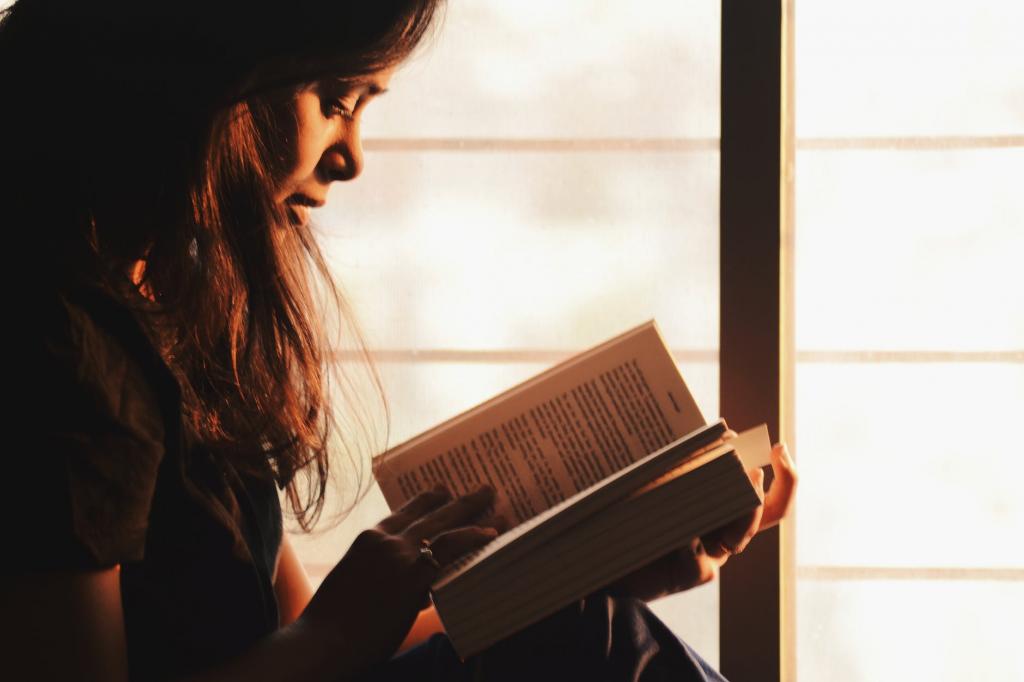In our modern age, the noble art of reading has been truncated and compromised. Today, a skilled reader is judged as someone who reads rapidly, who can scan the skeleton of any piece of writing and abstract its silhouette of meaning. Yet this is like taking an x-ray of a person and thinking you now have met the whole person.
The word “read” comes from the German raten which originally meant “to guess.” So reading is always a guess at what matters, a leaning in to all that is beyond words, a bow to all that gives rise to words.
I have always been a slow reader, not because I struggle with comprehending what I read, but because when challenged or moved by what I read, I slow down in an attempt to absorb what I’m taking in. Inherent in immersing ourselves in books is the call to enter time and not just move through it. Understanding reading in this way, books become thresholds to moments of living beyond our own.
There is a story in the Talmud in which students notice that their rabbi has been quietly reading the same passage over and over for several days. Concerned, one of the students approaches his teacher to see if he is alright. The rabbit smiles and says, “When I have come upon this small window into Eternity, why should I go anywhere else?”
The goal of reading to not to get anywhere but to open where we are. The practice of reading is both simple and hard. In his journal, the great naturalist Henry David Thoreau said,
To read true books, [with] a true spirit, is a noble exercise… one that will task the reader more than any exercise which the customs of the day esteem. It requires training such as athletes undergo. Books must be read as deliberately as they were written.
Moving too fast, we miss the thresholds that books offer. If we stay on the surface, even when reading studiously, books become placid, boring mirrors of our own speed and impatience.
The truth is that each book has its own way and feel, no one better than another. So enter the pages before you wholeheartedly. Simply open a book where you will and read a paragraph or sentence and carry it with you. Don’t worry about the sequence of reading a whole book in order. Just treat it as a friendly shore near a vast and unseeable ocean. Wander and pick up a shell here and there and hold it to your ear and see what happens.
A compelling and delightful practice I’ve developed over the years is to read many books at once. This way they cross-pollinate and begin to speak to each other. I began working this way when I was stuck at a certain point in writing my book, Finding Inner Courage. About two thirds of the way through, I lost my way. So I made some coffee and, quite intuitively, began to pull books down from my shelves.
First there was Carl Jung’s Dreams, Memories, Reflections. Then, I pulled down Siddhartha by Hermann Hesse. Then, a compilation of Avicenna’s medieval treatise The Canon of Medicine. One shelf down, I took out Galway Kinnell’s Mortal Acts, Mortal Words and Naomi Shihab Nye’s Words Under the Words. I moved across the room and added a book by Einstein on the autobiography of his mind.
I laid them all out on the floor and began to open them one at a time, and randomly read a paragraph or a poem. Immediately, one seemed to be responding to the other. The books across cultures and time were in conversation. Then, I suddenly started writing my way between the voices and joined the conversation. The reverie of voices led me to the rest of my book. I have read this way ever since.
From time to time, my wife Susan and I do this with others. We hold a poetry evening. We invite friends over for dinner. And just as we set the table, we set the living room with dozens of books on the coffee table and on the floor, piled at all angles on top of each other. Then, for dessert, we sit around and, one by one, each of us picks up a book we are drawn to and opens it without thought to read whatever we find. After everyone has read a passage, we pause to discuss the conversation that has presented itself. Then, we go around again. And again. Until we know when the visitation of these authors has ended.
Reading requires us to slow down enough for our heart to fully receive the page before us. Then that page becomes a window we can step through. In this way, reading is another way for us to educate the heart. For it is better to read one word over and over until it opens its treasure, than to scan a thousand words in search of gold. Better to climb one mountain and stand on its summit until you are kissed by the sky, than to scale all the high peaks in search of the top of the world. Better to love one person so thoroughly that you drink from the well of all who have loved, than to love another and another in hopes of filling your emptiness.
The images that educate the heart are abundant, and need to be loved into view before they will spill their honey. When committed to reading and writing, we are worker bees intent on making that honey.
A Question to Walk With: Describe the impact an experience of reading had on you and how that came about.
This excerpt is from my new book, Drinking from the River of Light, published this fall by Sounds True.
*Photo credit: Rahul Shah













